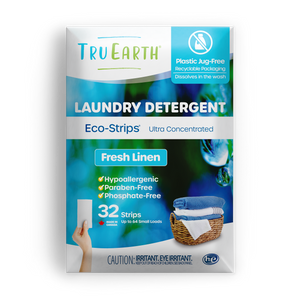Cleaning is a necessary part of maintaining a healthy and hygienic living environment. We often use various cleaning products to keep our homes and workplaces clean and safe. However, there is growing concern about the potential health risks associated with these cleaning products, particularly respiratory illnesses.
In this article, we will explore the link between cleaning products and respiratory issues, examine the specific chemicals to be cautious of, and discuss ways to minimize the risks while keeping our spaces clean and fresh.

Understanding the Link: Cleaning Products and Respiratory Issues
Respiratory problems, including asthma and allergies, are a significant concern for many people. Cleaning products, despite their effectiveness in removing dirt and germs, have been implicated in causing or exacerbating respiratory illnesses.
But how do these seemingly innocuous products lead to such health issues?
Irritating Chemicals
Many cleaning products contain harsh chemicals and volatile organic compounds (VOCs) that can irritate the respiratory system.(1) When inhaled, these substances can lead to various symptoms, including coughing, wheezing, and shortness of breath.
Aerosol Particles
Cleaning sprays, such as disinfectants or air fresheners, release fine aerosol particles. These particles can be inhaled and may irritate the respiratory tract or lead to inflammation in the airways.
Fragrances and Scented Products
Products that contain fragrances or scents can release potentially harmful chemicals into the air, which, when inhaled, might trigger respiratory problems, particularly in individuals with sensitivities or allergies.(2)
Exposure to Cleaning Fumes
Those who work in the cleaning industry or regularly use cleaning products might be at a higher risk of exposure to cleaning fumes, which can accumulate in poorly ventilated spaces and cause health issues over time.
Specific Chemicals to Be Cautious Of
While not all cleaning products are harmful, it's essential to be aware of specific chemicals linked to respiratory issues. Understanding these chemicals can help you make informed choices when selecting cleaning products:
- Ammonia: Commonly found in glass and window cleaners, ammonia can irritate the respiratory tract when inhaled.
- Bleach: A potent disinfectant, bleach can release chlorine gas when mixed with other products or used in a confined space, harming the respiratory system.
- Phthalates: These chemicals are often found in scented cleaning products and can exacerbate allergies and asthma symptoms.(3)
- VOCs: Volatile organic compounds, found in many cleaning products, can produce harmful fumes when used in poorly ventilated areas.
- Formaldehyde: In some cleaning agents, formaldehyde can irritate the eyes, nose, and throat when its vapors are released into the air.
Minimizing the Risks
While the potential risks of cleaning products are concerning, there are ways to minimize exposure and reduce the likelihood of respiratory issues:
- Choose Safer Products: Opt for cleaning products labeled as "fragrance-free" or "hypoallergenic" using fewer harsh chemicals.
- Ventilate: Proper ventilation is essential when cleaning—open windows and doors to allow fresh air to circulate and reduce exposure to indoor air pollutants.
- Use Personal Protective Equipment: Consider using gloves and a mask when handling cleaning products to limit direct contact and inhalation of fumes.
- Avoid Mixing Products: Different cleaning products, such as bleach and ammonia, can produce harmful gasses. Only mix chemicals if the label specifically instructs you to do so.
- Use Alternatives: Explore natural and eco-friendly cleaning alternatives, such as vinegar, baking soda, or hydrogen peroxide, which are less likely to cause respiratory issues.
- Read Labels: Always read and follow the instructions on product labels. Avoid using cleaning products in a way not recommended by the manufacturer.
- Regular Checkups: If you experience persistent respiratory symptoms, consult a healthcare professional. They can determine if your cleaning products contribute to your health issues and guide you in managing respiratory illnesses.

The Bottom Line
Cleaning products have the potential to cause or worsen respiratory illnesses due to the presence of irritating chemicals and harmful fumes. While it's essential to maintain a clean and hygienic environment, being aware of the risks and taking necessary precautions can help minimize these health concerns.
By selecting safer products, improving ventilation, and using personal protective equipment when needed, you can keep your living or working spaces clean without compromising your respiratory health. Always prioritize your well-being while maintaining a clean environment, and remember that safer alternatives are available.


